Cuban native Yusdanie Fernandez, the son of a farmer and a teacher, lived in small town situated between the mountains and the sea. After completing high school Fernandez graduated from college with a degree in nursing and began his medical career as a neonatal intensive care nurse. Later he became an intensive care nurse in the cardiovascular unit.
In 2015, he completed his studies in medicine and became a doctor. His diploma came with an offer to provide medical services in the Cuban medical missions in Venezuela. “I was in a small indigenous town called San Carlos del Rio Negro,” he says. “It was in the jungle of the Venezuelan Amazon next to the Black River and was only accessible by plane. I was able to learn about the culture of the Yanomami Indians and offer them health services in a small hospital that had an emergency room.”
After a year in the Amazon, Fernandez arrived in Miami, Florida, with the help of a religious organization that assisted immigrants looking to resettle in the United States. He soon relocated to Syracuse with the hope of continuing to work in the medical field. Currently, Fernandez manages an Embassy Suites Hotel while he navigates the process and paperwork necessary to become certified to practice medicine in the United States.
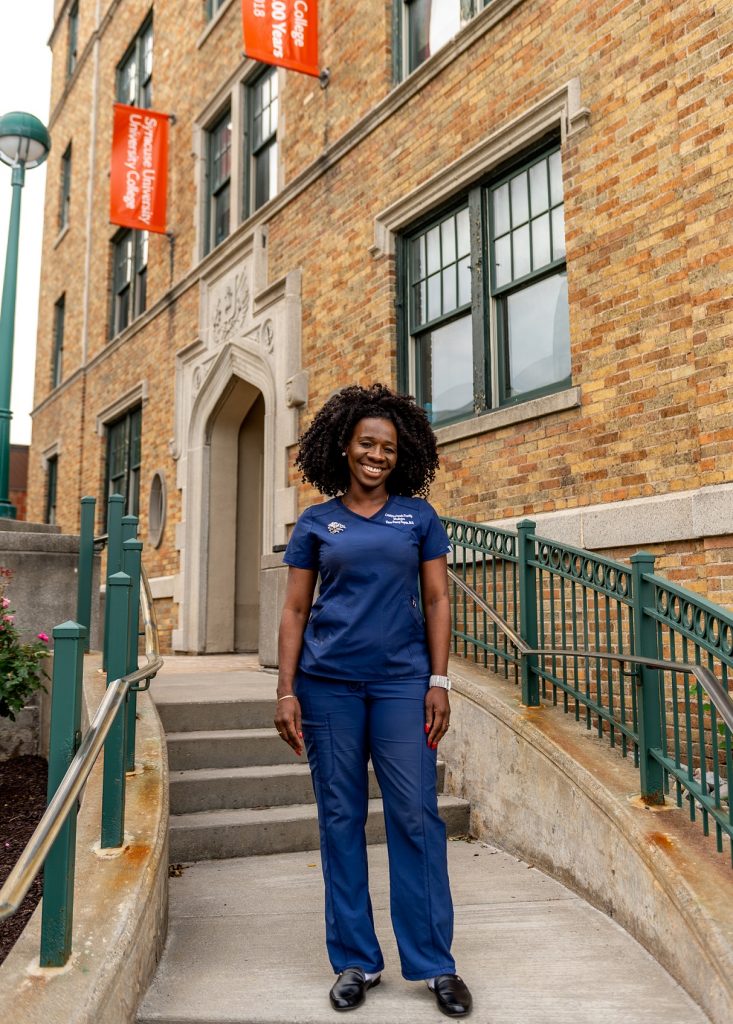
Rosa Gomez
Rosa Gomez received a bachelor of science degree in nursing from Calixto Garcia University in Havana, Cuba, followed by specialized training in the ICU. She earned a master’s degree focused on women’s health and has worked as a nurse for 26 years. Since arriving in Syracuse three years ago, Gomez has been working as a medical assistant with the hope of earning the credentials needed to work as a primary health care nurse.
The dream of becoming a doctor came true for Alexander Gonzalez Delis when he completed his studies at the Superior Institute of Medical Sciences in Santiago de Cuba. With two post-graduate degrees in family medicine and one in ophthalmology, Delis worked in three different countries before coming to the United States. His exemplary work as a doctor earned him honorary citizenship in Brazil.
These three individuals and 11 others are sharpening their English language and written skills at the English Language Institute (ELI) through a partnership between University College and Le Moyne College. The Welcome Back Center at Le Moyne is part of the national Welcome Back Initiative which addresses the need for more culturally and linguistically diverse health professionals living in Central New York. The center was made possible through the Mother Cabrini Health Foundation Grant, which helps re-train foreign medical professionals.
Jordan Burns, the recruitment specialist in the ELI, says that the relationship with Le Moyne College was established to develop pathways for students to complete English language training to prepare them for college and careers. “Because of our existing relationship with Le Moyne, they requested we partner with them to provide training to these medical professionals,” says Burns. “We were able to develop an appropriate course of study for the students, test them and enroll them in a matter of weeks.”
“The purpose of the center is to help these students get re-certified in the United States so they can practice medicine again,” explains Liz McCaffery, director of the Welcome Back Center. “Developing the students’ English language skills is an integral part of their success and preparedness. The certification process is very complicated and expensive. If our students don’t speak English well, it’s difficult to navigate.”
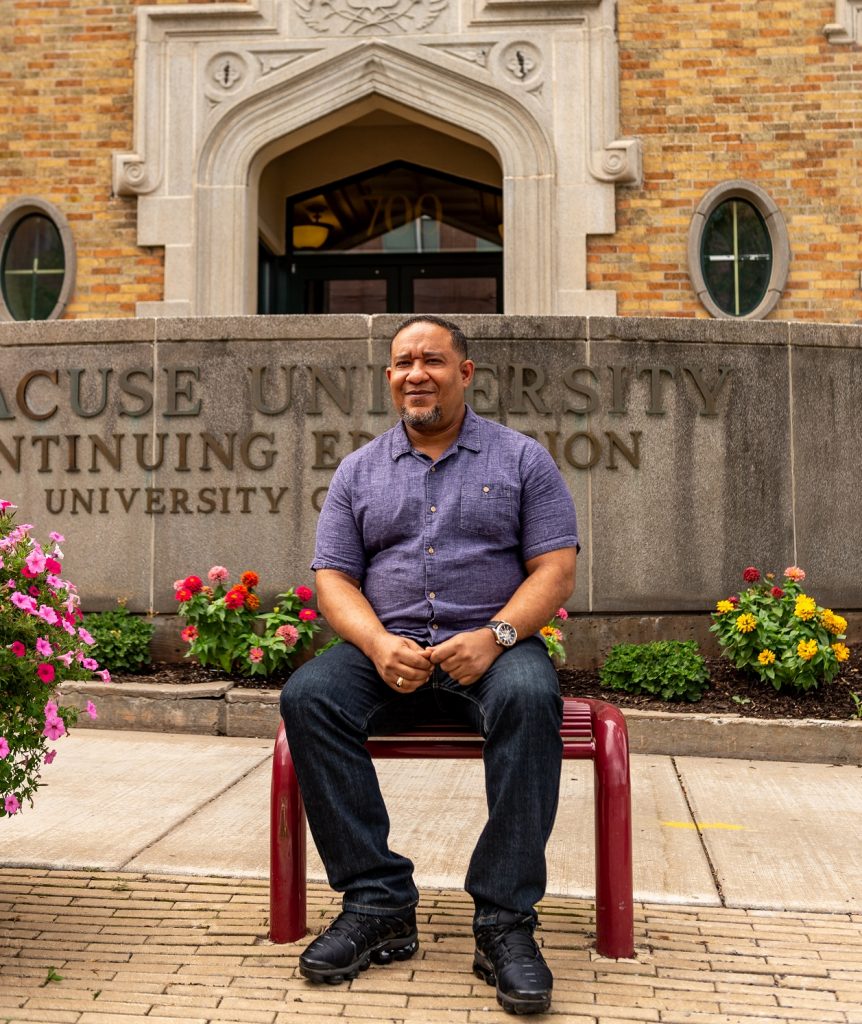
Alexander Gonzalez Delis
McCaffery says that immigrants who want to become medical doctors in the United States have to register with the U.S. government as a foreign student through the Educational Commission for Foreign Medical Graduates (ECSMG). “The registration process can be cumbersome and there are a lot of steps.”
Delis says that despite his current medical skills, it’s been very difficult to join the health system in the U.S. “Since I’ve arrived in Syracuse, I’ve been searching for opportunities to improve my skills,” say Delis. “The programs at Le Moyne and Syracuse University are making it possible to pursue my goals.”
Olga Oganesyan, assistant director of the ELI, says the participants are taking their learning experience very seriously. “The exam the students are required to take to practice medicine in the U.S. covers not only medical knowledge and terminology, but language skills as well,” she says. “The students are doing very well and are active participants.”
ELI instructor Michelle Sands says that the students are working to overcome barriers such as spelling, pronouncing and writing medical terms in the English language. While her students from Cuba spent several years studying English in medical school, they didn’t anticipate moving to the United States and therefore, did not always retain all of the information.
Sands’ students agree that reading comprehension is a difficult part of the medical board exam, specifically extracting the necessary information to finish within the time limit. “The students in my class are doctors or registered nurses,” explains Sands. “Their ultimate goal is to become certified to practice medicine in the United States.” The English language instructors at the ELI use a variety of strategies to help them achieve that.
“I’m very excited to be receiving this training that will open doors for me to continue to dedicate my life to health care,” says Fernandez. “My experience at the English Language Institute has given me resources I didn’t have.” He says that the ELI instructors consider the various cultures of their students when teaching them the different forms and rules of language. Other students in the program are from Haiti, Congo, Rwanda and Dominican Republic.
There are many aspects of living in the United States and Central New York that the medical professionals appreciate. Fernandez loves living in Syracuse where the lakes and forests are enhanced by the rich history of the region.
Rosa appreciates visiting downtown during the summer while working to obtain the tools she needs to become a nurse. Gonzalez says that being part of Syracuse University is one of the best things that has happened in his new life in America.
Each one of them appreciates the opportunities afforded them through the programs offered at Le Moyne College and University College’s English Language Institute.
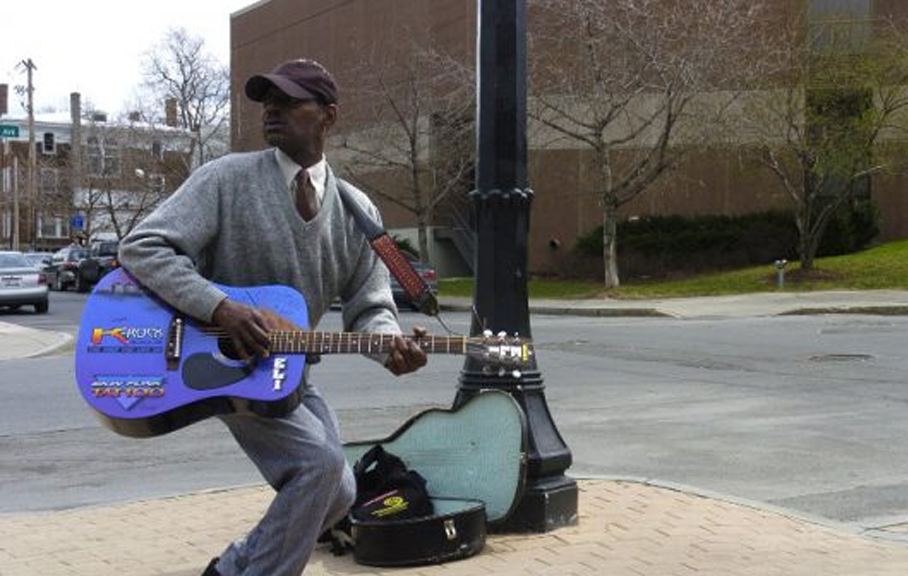
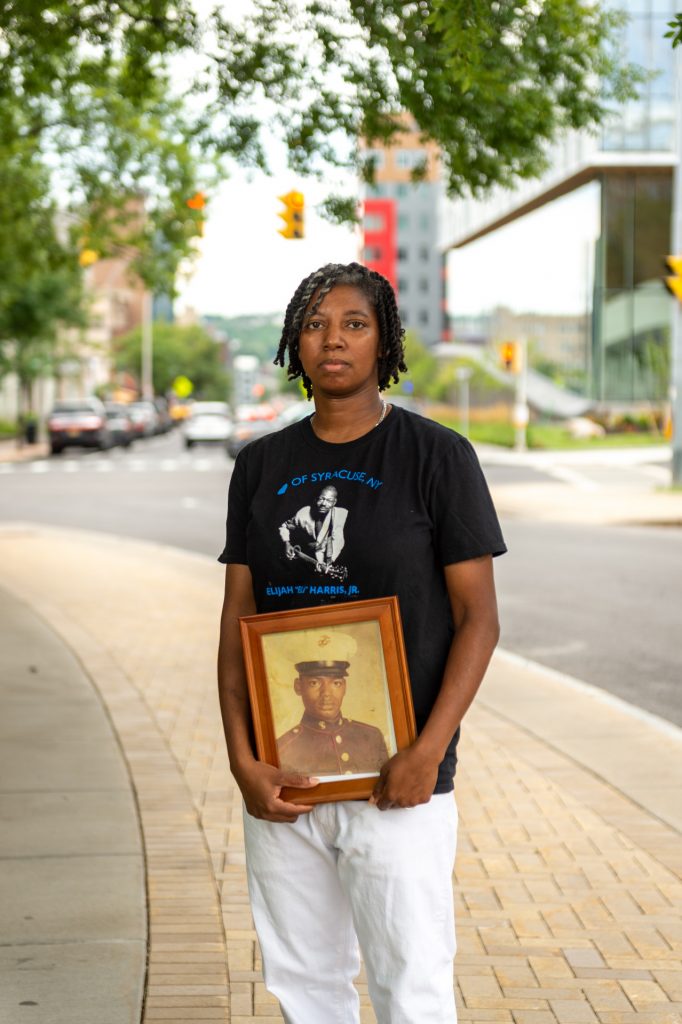



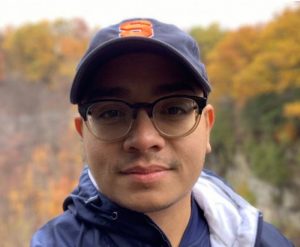 “One rarely thinks of their professional experience translating into college credits unless you are challenged to do so,” says Vincente Cuevas. “Once you reflect and acknowledge the professional competencies you’ve garnered over the years, you can truly appreciate your previous experiences.”
“One rarely thinks of their professional experience translating into college credits unless you are challenged to do so,” says Vincente Cuevas. “Once you reflect and acknowledge the professional competencies you’ve garnered over the years, you can truly appreciate your previous experiences.”